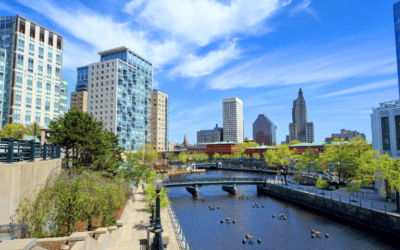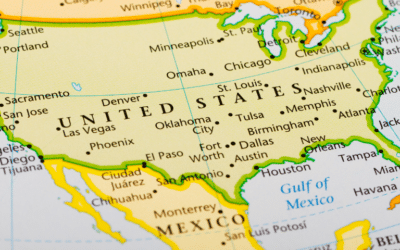Financial incentives are a crucial part of encouraging businesses and residential owners to adopt energy-efficient practices and technologies. Energy efficient incentives can take the form of loans, bonds, and grants. The incentives can also include tax exemptions and credits on eligible products. Businesses can also take advantage of income tax credits and deductions. Financial incentives help offset the costs associated with implementing energy-efficient technologies.
Along with energy efficient incentives at the federal level, states are also offering rebate programs to qualifying businesses. Here’s a look at the incentives for Massachusetts.
With the differences between states, if you have a national or multi-regional footprint, understanding the differences between state programs is key. Check out our blog feed for more state-by-state incentive and rebate programs.
Incentives for Massachusetts
The available incentives for MA businesses include the following.
- Leading by Example Feasibility Study Grants: Working with public partners across Massachusetts, the state government program provides leadership, technical assistance, guidance, and grant funding to ensure successful implementation of strategies outlined in Executive Order 484. The Leading by Example (LBE) program supports a wide variety of environmental and energy initiatives.
- Leading by Example Fleet Charging Stations: Funds in the program support the installation of charging stations at state facilities to support the electric vehicles in the state fleet.
- Alternative Energy and Energy Conservation Patent Exemption (corporate and personal): You can find more information about this program here.
- Green Communities Grant Program: To learn more about the benefits of Green Communities Grant Program click here.
- Transit-Oriented Development (TOD) Bond Program: The Transit-Oriented Development (TOD) Bond Program is intended to increase compact, mixed-use, and walkable development close to transit stations. The program, under Chapter 291 of the Acts of 2004, is providing funding for pedestrian improvements, bicycle facilities, housing projects, and parking facilities within .25 (1/4) miles of a commuter rail station, subway station, bus station, bus rapid transit station, or ferry terminal.
- Municipal Energy Technical Assistance (META) Program: The Department of Energy Resources (DOER) awards META grants to designated Green Communities or municipalities in Massachusetts. This includes municipalities, regional school districts, and water/wastewater districts. META grants help energy projects by funding the services of expert consultants and contractors, aiding in the management of projects or their performance studies.
- Massachusetts Offers Rebates for Electric Vehicles (MOR-EV) Rebate Program: The Executive Office of Energy and Environmental Affairs’ Department of Energy Resources (DOER), MOR-EV provides rebates of up to $2,500 for the purchase or lease of battery electric vehicles and fuel-cell electric vehicles and up to $1,500 for plug-in hybrid electric vehicles with a sales price of not more than $50,000.
- Zero Energy Modular Affordable Housing Initiative (ZE-MAHI): ZE-MAHI provides funding for the development of programs to replace existing inefficient manufactured/mobile homes with new zero energy affordable modular homes with comparable square footage. The goal is the installation of 10 zero-energy modular homes.
- Pathways to Zero Grant: The Pathways to Zero Grant Program is a $3.5 million Department of Energy Resources (DOER) initiative launched in 2014 to spur the development of Zero Net Energy Buildings (ZNEB) in Massachusetts. $3.0M is being used to support residential and commercial ZNEB projects through feasibility studies, integrated design, and construction funding, and $500,000 is being used for public awareness, workforce development, efforts to develop and standardize best practices, and DOER resources.
- Community Clean Energy Resiliency Initiative: The program is working to improve the energy resilience of critical facilities using clean energy sources such as CHP and solar. The initial round was in 2015 and includes funding for studies and implementation.
- Affordable Access Grant Programs: Provides funding to Regional Planning Authorities to provide clean energy training to municipal or community organizations that support low-income populations.
To learn more about these energy efficient incentives in MA or if you need assistance with the application process contact us today by calling 480-653-8180, emailing [email protected], or schedule a call that fits your needs by clicking the button below!
Reference: American Council for an Energy-Efficient Economy (2023). State and Local Policy Database. ACEEE. https://database.aceee.org/state/financial-incentives






0 Comments